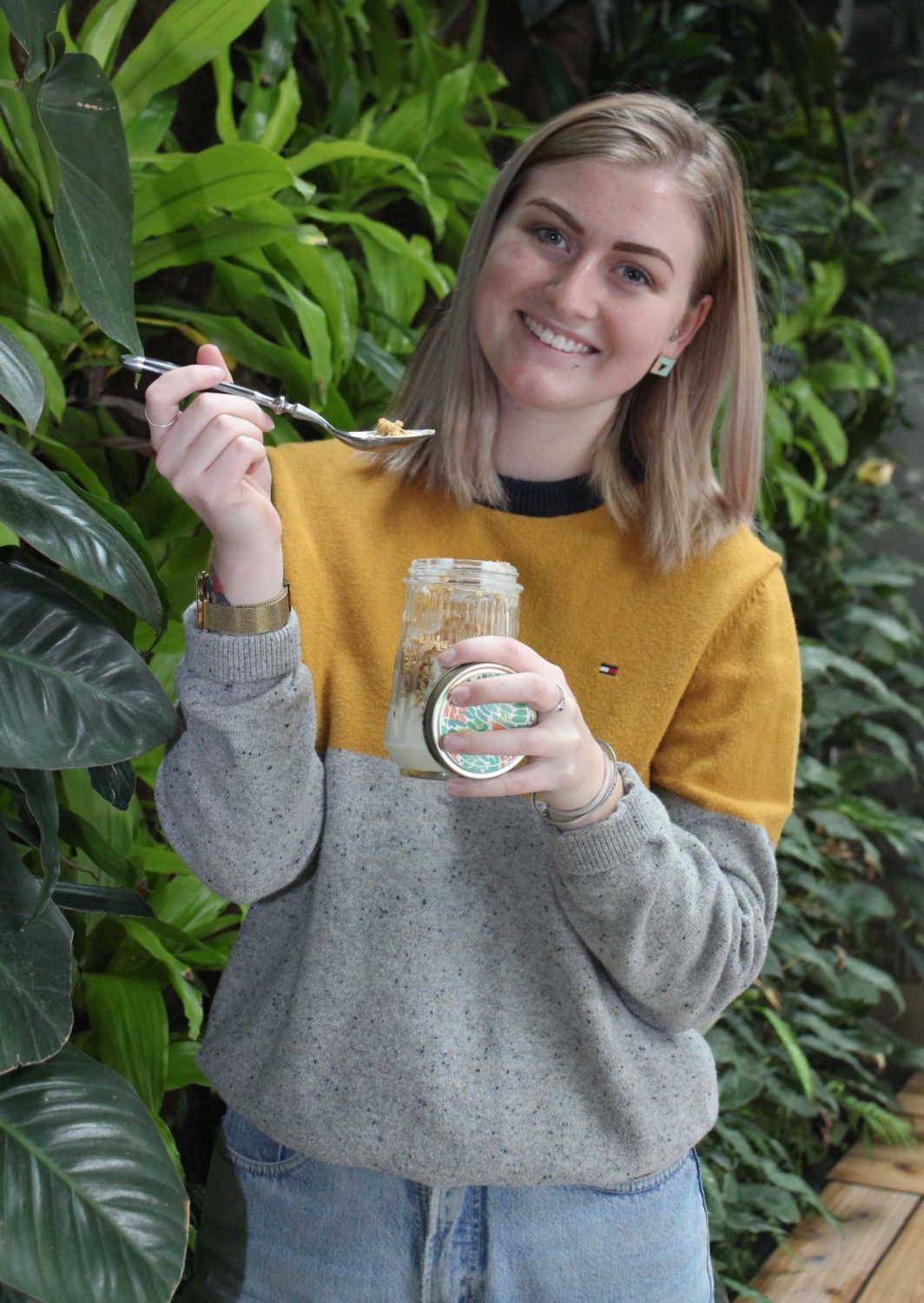By 2050, there will be more plastic in our world’s oceans than fish.
Some might brush off that fact, but others take it upon themselves to try and make a lasting and positive impact on the world.
Going vegan, using a bike, joining climate change protests; there are multiple ways that students can raise their green thumb for the Earth.
In fact, there are individuals that live a lifestyle that’s dedicated to not creating any waste around them.
This lifestyle is aptly called zero-waste.
Danielle Hammond, a 21-year-old business marketing student at Algonquin, is fresh to this lifestyle. Her journey began a couple of months ago when she heard about the Amazon’s forest fires.
She started to implement certain sustainable practices in her life – one of them being thrift shopping.
“In my everyday apparel, I’m always wearing one thrifted thing,” says Hammond.
It takes 2,700 litres of water to create one cotton shirt. With that amount of water, one person could drink for 900 days.
While her journey is very recent, Hammond hopes to be more than 50 per cent zero-waste by the end of 2019.
For students trying to find some easy ways to reduce their waste output, some post-secondary institutions have resources and information to offer.
Brigitte Morin, a waste diversion coordinator at the University of Ottawa, teaches students how to be more mindful of the waste they create around them.
One of the easy ways she suggests students to do so, is to use a reusable mug.
This can easily eliminate the usage of single-use cups that usually get improperly thrown out.
“One of the biggest mistakes people make is with coffee cups,” says Morin. “People think it goes into [the] paper [bin], but it actually is a compostable item.”
Because of the leftover coffee in the cup, it doesn’t belong in the paper bin. To further complicate things, the lid doesn’t go in neither, which makes it difficult for cups to be recycled properly.
uOttawa also offers a shop called Free Store, where unused items are donated for any of the university’s students to pick up.
Even with such resources at the students’ disposition, adapting to a zero-waste lifestyle can be difficult. That wasn’t the case for Amy Springle.
At the beginning of her four-year zero-waste lifestyle, the Algonquin interior design student noticed the amount of waste that she and her boyfriend were making. One of the problems was paper towels. Springle had enough and started to replace them with cloth napkins.
“It kinda escalated from there,” says Springle.
That simple switch inspired her to do more and she slowly started working her way to creating less waste by buying containers, reusable bags and a bamboo toothbrush.
Going zero-waste might seem like a daunting task for a person to take on alone, so a group effort can also be used to maximize effectiveness.
Kelsey Drummond, a 20-year-old law student at Carleton University, decided to go zero-waste with the help of her roommates. With proper communication and organization, they are striving to become a zero-waste household.
Drummond was in the process of going zero-waste, as was one of her roommates who is also environmentally conscious.
“It kind of rubbed off on everyone else because we both moved in and we’re like ‘Yes, no plastic,’ and we do our Bulk Barn trips together, so everyone else was like ‘Yeah okay, we’ll get on board,’” says Drummond.
From buying reusable items to thrift shopping, there are many methods that students can employ to make a difference.



